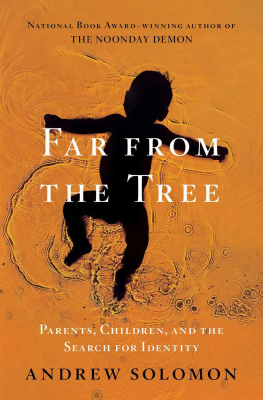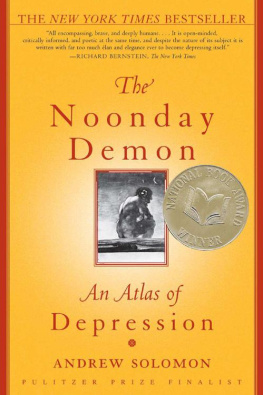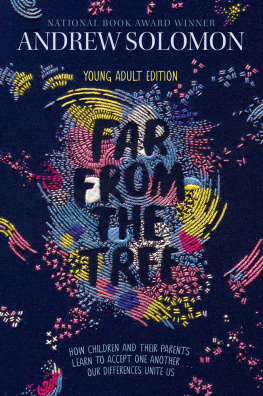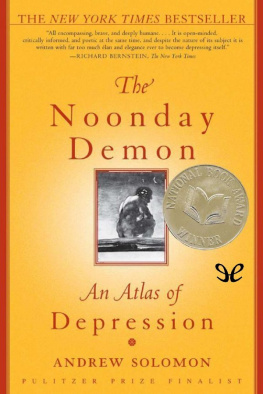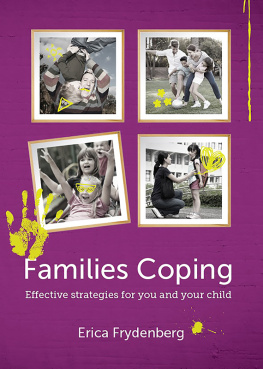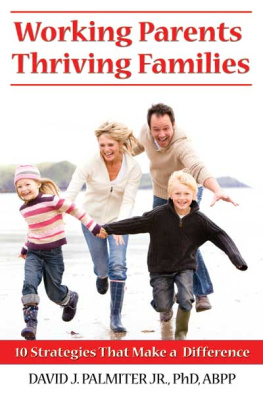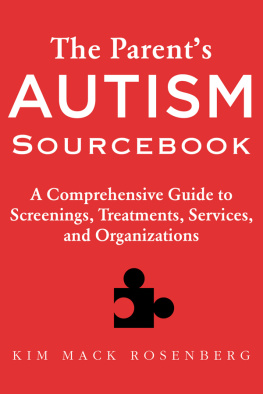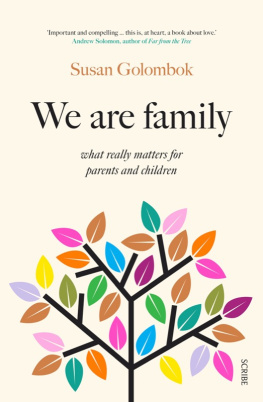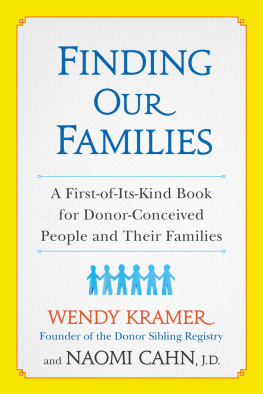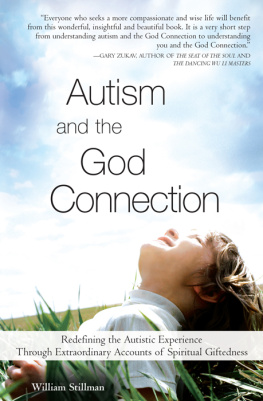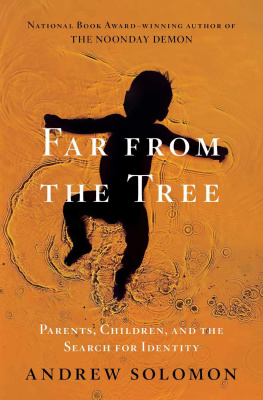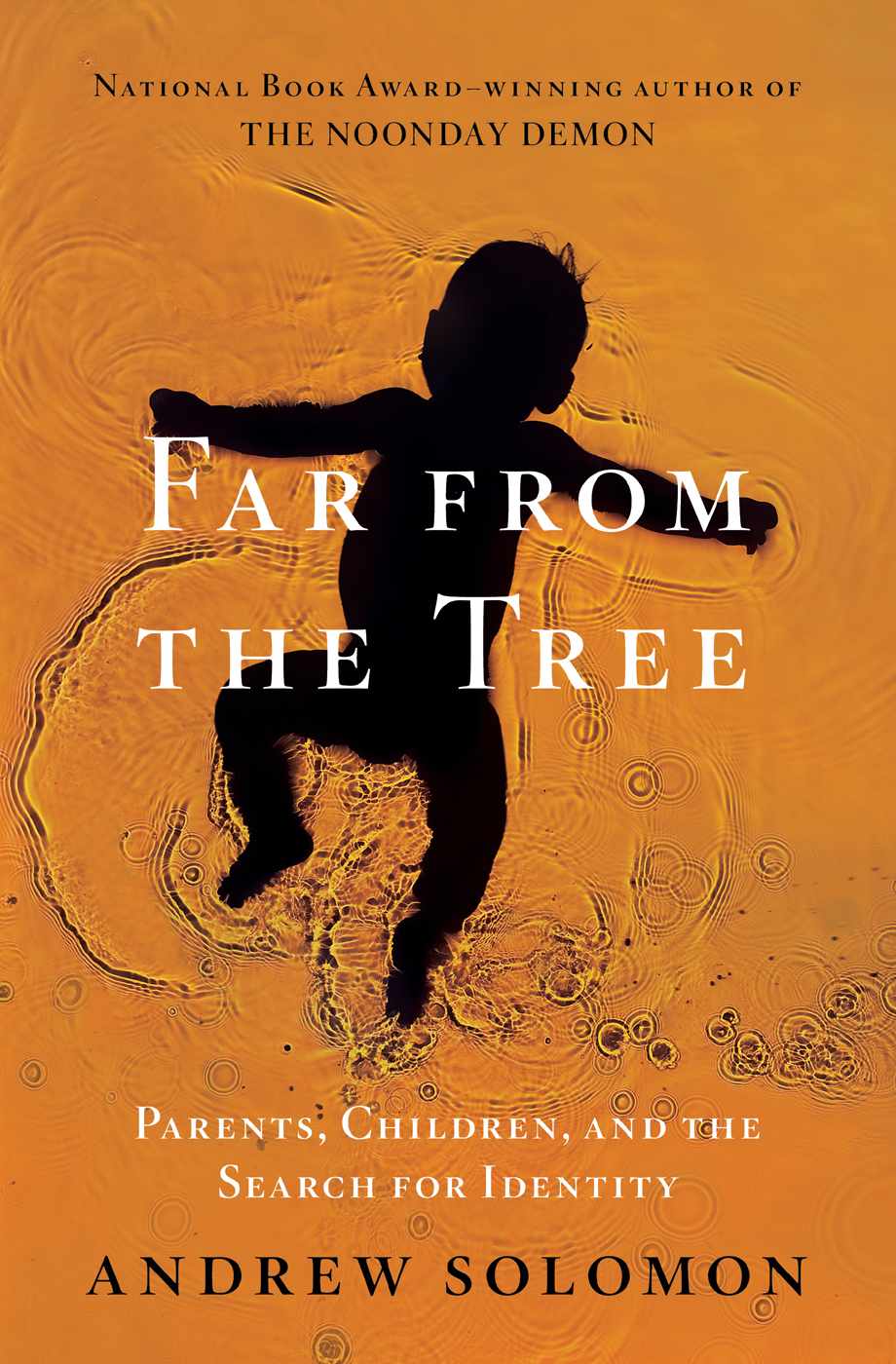
Thank you for purchasing this Scribner eBook.
Join our mailing list and get updates on new releases, deals, bonus content and other great books from Scribner and Simon & Schuster.
C LICK H ERE T O S IGN U P
or visit us online to sign up at
eBookNews.SimonandSchuster.com
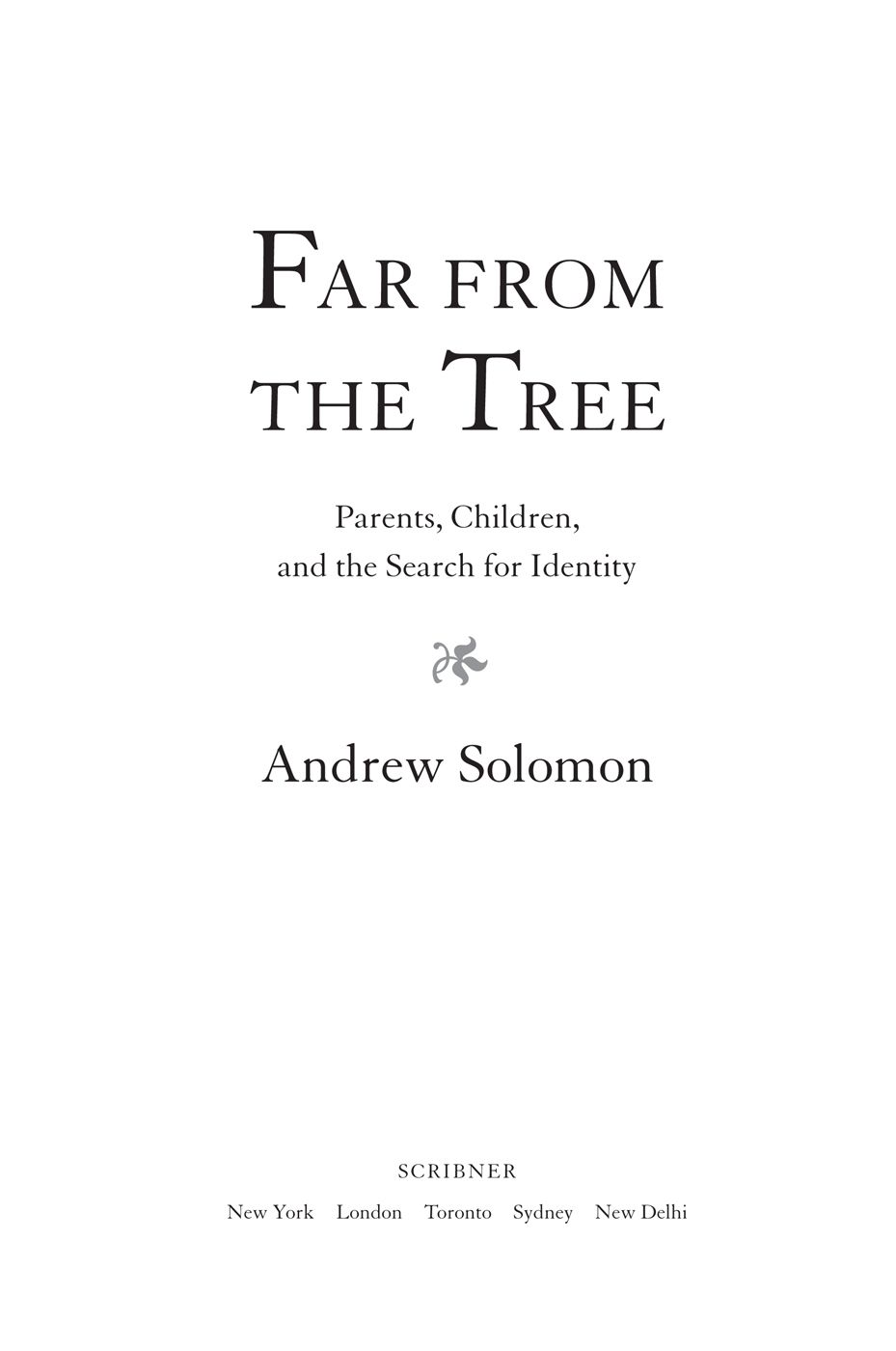
Contents
for John,
for the sake of whose difference
I would gladly give up all the sameness in the world
The imperfect is our paradise.
Note that, in this bitterness, delight,
Since the imperfect is so hot in us,
Lies in flawed words and stubborn sounds.
Wallace Stevens,
The Poems of Our Climate
I
Son
T here is no such thing as reproduction. When two people decide to have a baby, they engage in an act of production, and the widespread use of the word reproduction for this activity, with its implication that two people are but braiding themselves together, is at best a euphemism to comfort prospective parents before they get in over their heads. In the subconscious fantasies that make conception look so alluring, it is often ourselves that we would like to see live forever, not someone with a personality of his own. Having anticipated the onward march of our selfish genes, many of us are unprepared for children who present unfamiliar needs. Parenthood abruptly catapults us into a permanent relationship with a stranger, and the more alien the stranger, the stronger the whiff of negativity. We depend on the guarantee in our childrens faces that we will not die. Children whose defining quality annihilates that fantasy of immortality are a particular insult; we must love them for themselves, and not for the best of ourselves in them, and that is a great deal harder to do. Loving our own children is an exercise for the imagination.
Yet blood, in modern as in ancient societies, is thicker than water. Little is more gratifying than successful and devoted children, and few situations are worse than filial failure or rejection. Our children are not us: they carry throwback genes and recessive traits and are subject right from the start to environmental stimuli beyond our control. And yet we are our children; the reality of being a parent never leaves those who have braved the metamorphosis. The psychoanalyst D. W. Winnicott once said, There is no such thing as a babymeaning that if you set out to describe a baby, you will find you are describing a baby and someone . A baby cannot exist alone but is essentially part of a relationship. Insofar as our children resemble us, they are our most precious admirers, and insofar as they differ, they can be our most vehement detractors. From the beginning, we tempt them into imitation of us and long for what may be lifes most profound compliment: their choosing to live according to our own system of values. Though many of us take pride in how different we are from our parents, we are endlessly sad at how different our children are from us.
Because of the transmission of identity from one generation to the next, most children share at least some traits with their parents. These are vertical identities. Attributes and values are passed down from parent to child across the generations not only through strands of DNA, but also through shared cultural norms. Ethnicity, for example, is a vertical identity. Children of color are in general born to parents of color; the genetic fact of skin pigmentation is transmitted across generations along with a self-image as a person of color, even though that self-image may be subject to generational flux. Language is usually vertical, since most people who speak Greek raise their children to speak Greek, too, even if they inflect it differently or speak another language much of the time. Religion is moderately vertical: Catholic parents will tend to bring up Catholic children, though the children may turn irreligious or convert to another faith. Nationality is vertical, except for immigrants. Blondness and myopia are often transmitted from parent to child, but in most cases do not form a significant basis for identityblondness because it is fairly insignificant, and myopia because it is easily corrected.
Often, however, someone has an inherent or acquired trait that is foreign to his or her parents and must therefore acquire identity from a peer group. This is a horizontal identity. Such horizontal identities may reflect recessive genes, random mutations, prenatal influences, or values and preferences that a child does not share with his progenitors. Being gay is a horizontal identity; most gay kids are born to straight parents, and while their sexuality is not determined by their peers, they learn gay identity by observing and participating in a subculture outside the family. Physical disability tends to be horizontal, as does genius. Psychopathy, too, is often horizontal; most criminals are not raised by mobsters and must invent their own treachery. So are conditions such as autism and intellectual disability. A child conceived in rape is born into emotional challenges that his own mother cannot know, even though they spring from her trauma.
In 1993, I was assigned to investigate Deaf culture for the New York Times . My assumption about deafness was that it was a deficit and nothing more. Over the months that followed, I found myself drawn into the Deaf world. Most deaf children are born to hearing parents, and those parents frequently prioritize functioning in the hearing world, expending enormous energy on oral speech and lipreading. Doing so, they can neglect other areas of their childrens education. While some deaf people are good at lipreading and produce comprehensible speech, many do not have that skill, and years go by as they sit endlessly with audiologists and speech pathologists instead of learning history and mathematics and philosophy. Many stumble upon Deaf identity in adolescence, and it comes as a great liberation. They move into a world that validates Sign as a language and discover themselves. Some hearing parents accept this powerful new development; others struggle against it.
The whole situation felt arrestingly familiar to me because I am gay. Gay people usually grow up under the purview of straight parents who feel that their children would be better off straight and sometimes torment them by pressing them to conform. Those gay people often discover gay identity in adolescence or afterward, finding great relief there. When I started writing about the deaf, the cochlear implant, which can provide some facsimile of hearing, was a recent innovation. It had been hailed by its progenitors as a miraculous cure for a terrible defect and was deplored by the Deaf community as a genocidal attack on a vibrant community. Both sides have since moderated their rhetoric, but the issue is complicated by the fact that cochlear implants are most effective when they are surgically implanted earlyin infants, ideallyso the decision is often made by parents before the child can possibly have or express an informed opinion. Watching the debate, I knew that my own parents would gamely have consented to a parallel early procedure to ensure that I would be straight, had one existed. I do not doubt that the advent of such a thing even now could wipe out most of gay culture. I am saddened by the idea of such a threat, and yet as my understanding of Deaf culture deepened, I realized that the attitudes I had found benighted in my parents resembled my own likely response to producing a deaf child. My first impulse would have been to do whatever I could to fix the abnormality.
Next page
